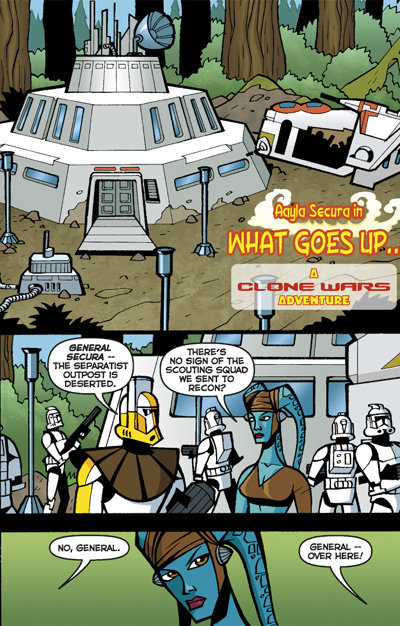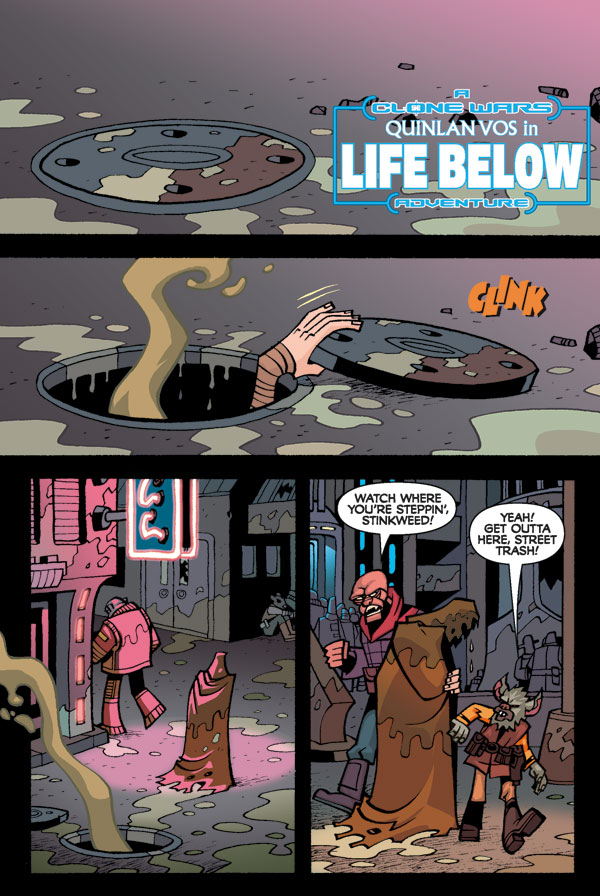
rajeshalex
08-15 06:26 AM
Hi All,
I have I-140 with PD of 2004 from previous company. From the current company I had started new GC process.
a) Previous labor title is software engineer. New labor title is Computer support specialist.
b) New perm process just started and job order has been posted last month.
In the job order company didnt give much details and only one sentence which is related to the old labor job description though it has 8 lines describing the job description
c)Should the above be a problem for porting the PD? Also current company has not done the sunday ads. Can they include all 8 lines describing the job description in the sunday ads?
d)I am in Viriginia and which sunday news papers do you recommend(EB2)
category.
e) Is there any PERM filing fee ?
Thank you
Rajesh
:confused:
I have I-140 with PD of 2004 from previous company. From the current company I had started new GC process.
a) Previous labor title is software engineer. New labor title is Computer support specialist.
b) New perm process just started and job order has been posted last month.
In the job order company didnt give much details and only one sentence which is related to the old labor job description though it has 8 lines describing the job description
c)Should the above be a problem for porting the PD? Also current company has not done the sunday ads. Can they include all 8 lines describing the job description in the sunday ads?
d)I am in Viriginia and which sunday news papers do you recommend(EB2)
category.
e) Is there any PERM filing fee ?
Thank you
Rajesh
:confused:
wallpaper Now middot; STAR

gimmeacard
09-08 11:52 PM
Hello
i got CPO emails for spouse and self today, I am PD April 06 EB2
I had filed my prior applicaiton in EB3 with 485, Later i joined new firmB around august 2007 timeframe. and they started off again using old PD and ported to EB2, which was granted,
my new company filed for my 485 again as they thought it was right around when i moved and could raise RFE
I got an email today my CPO ordered, using 485# of prior filing
what should i do, tell USCIS or talk to lawyers, i dont want this to cause a denial
( I never used EAD or so, always on H1)
__________________
EB2 April 2006
i got CPO emails for spouse and self today, I am PD April 06 EB2
I had filed my prior applicaiton in EB3 with 485, Later i joined new firmB around august 2007 timeframe. and they started off again using old PD and ported to EB2, which was granted,
my new company filed for my 485 again as they thought it was right around when i moved and could raise RFE
I got an email today my CPO ordered, using 485# of prior filing
what should i do, tell USCIS or talk to lawyers, i dont want this to cause a denial
( I never used EAD or so, always on H1)
__________________
EB2 April 2006

kirupa
03-23 03:08 AM
haha, clever!
Added :)
Added :)
2011 Star Wars: Clone Wars

valysivec27
07-18 03:24 PM
Hello,
I have an approved I140 and eligible to apply for I485. My wife is in the same situation.
Should we file separate? Or should I file only one application heither through my employer or hers?
Any clarification in this matter would be greatly appreciated.
Thansk,
Valy
I have an approved I140 and eligible to apply for I485. My wife is in the same situation.
Should we file separate? Or should I file only one application heither through my employer or hers?
Any clarification in this matter would be greatly appreciated.
Thansk,
Valy
more...

dohko
09-24 09:28 PM
Yes, but if I file I-140 and I-485 wouldnt both be approved at the same time?

GCnightmare
08-13 12:43 AM
My AP was approved on 06/25/07 but there is an LUD on it on 08/12/07. Can somebody tell me what it can be? Thanks
more...

martinvisalaw
09-18 02:18 PM
The consulate cannot approve you for permanent residence if there are no visa numbers available. Priority dates apply whether you do AOS or CP.
2010 E3 2010: Star Wars: Clone Wars

psk79
07-19 09:14 PM
Hi, I have been noticing on .com that even after the mess-ups in Aug 08 when similar visa bulletin came out and uscis approved lots of cases from 06 ignoring people from 04 and 05, they are not approving cases in pd order even now (well not like before but still bad). I mean how can they approve sep 05 cases before all 03/2005 cases are approved especially if they are all pre-adj and ready (atleast most are). Even though technically anyone until oct 1, 2005 is eligible for visa number, Shouldn't they go in order? This is very unfair given you don't know when they might run out of numbers and TSC is snail paced doing 3-6 approvals a day atmost while NSC is doing tons a day :) Any comments?
more...

go_guy123
07-02 05:53 AM
You can even take an unpaid job/volunteer to keep you clear of the 90 days unemployed clause.
I didnt know that even the OPT rules have changed now. This is a mess.
Now OPT also you cant remain unemployed for more than 90 days. Now this OPT is becoming like another H1B.
I didnt know that even the OPT rules have changed now. This is a mess.
Now OPT also you cant remain unemployed for more than 90 days. Now this OPT is becoming like another H1B.
hair Star Wars: Clone Wars

kirupa
09-13 05:30 PM
Some portions of the animation might have numerous edges that take a long time for your processor to process. You really cannot avoid that unless you have any background programs running.
more...

gc_chahiye
06-19 10:51 PM
anybody used this lawfirm for I485 filing?
hot Star Wars: Clone Wars

Macaca
11-11 08:15 AM
Extreme Politics (http://www.nytimes.com/2007/11/11/books/review/Brinkley-t.html) By ALAN BRINKLEY | New York Times, November 11, 2007
Alan Brinkley is the Allan Nevins professor of history and the provost at Columbia University.
Few people would dispute that the politics of Washington are as polarized today as they have been in decades. The question Ronald Brownstein poses in this provocative book is whether what he calls “extreme partisanship” is simply a result of the tactics of recent party leaders, or whether it is an enduring product of a systemic change in the structure and behavior of the political world. Brownstein, formerly the chief political correspondent for The Los Angeles Times and now the political director of the Atlantic Media Company, gives considerable credence to both explanations. But the most important part of “The Second Civil War” — and the most debatable — is his claim that the current political climate is the logical, perhaps even inevitable, result of a structural change that stretched over a generation.
A half-century ago, Brownstein says, the two parties looked very different from how they appear today. The Democratic Party was a motley combination of the conservative white South; workers in the industrial North as well as African-Americans and other minorities; and cosmopolitan liberals in the major cities of the East and West Coasts. Republicans dominated the suburbs, the business world, the farm belt and traditional elites. But the constituencies of both parties were sufficiently diverse, both demographically and ideologically, to mute the differences between them. There were enough liberals in the Republican Party, and enough conservatives among the Democrats, to require continual negotiation and compromise and to permit either party to help shape policy and to be competitive in most elections. Brownstein calls this “the Age of Bargaining,” and while he concedes that this era helped prevent bold decisions (like confronting racial discrimination), he clearly prefers it to the fractious world that followed.
The turbulent politics of the 1960s and ’70s introduced newly ideological perspectives to the two major parties and inaugurated what Brownstein calls “the great sorting out” — a movement of politicians and voters into two ideological camps, one dominated by an intensified conservatism and the other by an aggressive liberalism. By the end of the 1970s, he argues, the Republican Party was no longer a broad coalition but a party dominated by its most conservative voices; the Democratic Party had become a more consistently liberal force, and had similarly banished many of its dissenting voices. Some scholars and critics of American politics in the 1950s had called for exactly such a change, insisting that clear ideological differences would give voters a real choice and thus a greater role in the democratic process. But to Brownstein, the “sorting out” was a catastrophe that led directly to the meanspirited, take-no-prisoners partisanship of today.
There is considerable truth in this story. But the transformation of American politics that he describes was the product of more extensive forces than he allows and has been, at least so far, less profound than he claims. Brownstein correctly cites the Democrats’ embrace of the civil rights movement as a catalyst for partisan change — moving the white South solidly into the Republican Party and shifting it farther to the right, while pushing the Democrats farther to the left. But he offers few other explanations for “the great sorting out” beyond the preferences and behavior of party leaders. A more persuasive explanation would have to include other large social changes: the enormous shift of population into the Sun Belt over the last several decades; the new immigration and the dramatic increase it created in ethnic minorities within the electorate; the escalation of economic inequality, beginning in the 1970s, which raised the expectations of the wealthy and the anxiety of lower-middle-class and working-class people (an anxiety conservatives used to gain support for lowering taxes and attacking government); the end of the cold war and the emergence of a much less stable international system; and perhaps most of all, the movement of much of the political center out of the party system altogether and into the largest single category of voters — independents. Voters may not have changed their ideology very much. Most evidence suggests that a majority of Americans remain relatively moderate and pragmatic. But many have lost interest, and confidence, in the political system and the government, leaving the most fervent party loyalists with greatly increased influence on the choice of candidates and policies.
Brownstein skillfully and convincingly recounts the process by which the conservative movement gained control of the Republican Party and its Congressional delegation. He is especially deft at identifying the institutional and procedural tools that the most conservative wing of the party used after 2000 both to vanquish Republican moderates and to limit the ability of the Democratic minority to participate meaningfully in the legislative process. He is less successful (and somewhat halfhearted) in making the case for a comparable ideological homogeneity among the Democrats, as becomes clear in the book’s opening passage. Brownstein appropriately cites the former House Republican leader Tom DeLay’s farewell speech in 2006 as a sign of his party’s recent strategy. DeLay ridiculed those who complained about “bitter, divisive partisan rancor.” Partisanship, he stated, “is not a symptom of democracy’s weakness but of its health and its strength.”
But making the same argument about a similar dogmatism and zealotry among Democrats is a considerable stretch. To make this case, Brownstein cites not an elected official (let alone a Congressional leader), but the readers of the Daily Kos, a popular left-wing/libertarian Web site that promotes what Brownstein calls “a scorched-earth opposition to the G.O.P.” According to him, “DeLay and the Democratic Internet activists ... each sought to reconfigure their political party to the same specifications — as a warrior party that would commit to opposing the other side with every conceivable means at its disposal.” The Kos is a significant force, and some leading Democrats have attended its yearly conventions. But few party leaders share the most extreme views of Kos supporters, and even fewer embrace their “passionate partisanship.” Many Democrats might wish that their party leaders would emulate the aggressively partisan style of the Republican right. But it would be hard to argue that they have come even remotely close to the ideological purity of their conservative counterparts. More often, they have seemed cowed and timorous in the face of Republican discipline, and have over time themselves moved increasingly rightward; their recapture of Congress has so far appeared to have emboldened them only modestly.
There is no definitive answer to the question of whether the current level of polarization is the inevitable result of long-term systemic changes, or whether it is a transitory product of a particular political moment. But much of this so-called age of extreme partisanship has looked very much like Brownstein’s “Age of Bargaining.” Ronald Reagan, the great hero of the right and a much more effective spokesman for its views than President Bush, certainly oversaw a significant shift in the ideology and policy of the Republican Party. But through much of his presidency, both he and the Congressional Republicans displayed considerable pragmatism, engaged in negotiation with their opponents and accepted many compromises. Bill Clinton, bedeviled though he was by partisan fury, was a master of compromise and negotiation — and of co-opting and transforming the views of his adversaries. Only under George W. Bush — through a combination of his control of both houses of Congress, his own inflexibility and the post-9/11 climate — did extreme partisanship manage to dominate the agenda. Given the apparent failure of this project, it seems unlikely that a new president, whether Democrat or Republican, will be able to recreate the dispiriting political world of the last seven years.
Division of the U.S. Didn’t Occur Overnight (http://www.nytimes.com/2007/11/13/books/13kaku.html) By MICHIKO KAKUTANI | New York Times, November 13, 2007
THE SECOND CIVIL WAR How Extreme Partisanship Has Paralyzed Washington and Polarized America By Ronald Brownstein, The Penguin Press. $27.95
Alan Brinkley is the Allan Nevins professor of history and the provost at Columbia University.
Few people would dispute that the politics of Washington are as polarized today as they have been in decades. The question Ronald Brownstein poses in this provocative book is whether what he calls “extreme partisanship” is simply a result of the tactics of recent party leaders, or whether it is an enduring product of a systemic change in the structure and behavior of the political world. Brownstein, formerly the chief political correspondent for The Los Angeles Times and now the political director of the Atlantic Media Company, gives considerable credence to both explanations. But the most important part of “The Second Civil War” — and the most debatable — is his claim that the current political climate is the logical, perhaps even inevitable, result of a structural change that stretched over a generation.
A half-century ago, Brownstein says, the two parties looked very different from how they appear today. The Democratic Party was a motley combination of the conservative white South; workers in the industrial North as well as African-Americans and other minorities; and cosmopolitan liberals in the major cities of the East and West Coasts. Republicans dominated the suburbs, the business world, the farm belt and traditional elites. But the constituencies of both parties were sufficiently diverse, both demographically and ideologically, to mute the differences between them. There were enough liberals in the Republican Party, and enough conservatives among the Democrats, to require continual negotiation and compromise and to permit either party to help shape policy and to be competitive in most elections. Brownstein calls this “the Age of Bargaining,” and while he concedes that this era helped prevent bold decisions (like confronting racial discrimination), he clearly prefers it to the fractious world that followed.
The turbulent politics of the 1960s and ’70s introduced newly ideological perspectives to the two major parties and inaugurated what Brownstein calls “the great sorting out” — a movement of politicians and voters into two ideological camps, one dominated by an intensified conservatism and the other by an aggressive liberalism. By the end of the 1970s, he argues, the Republican Party was no longer a broad coalition but a party dominated by its most conservative voices; the Democratic Party had become a more consistently liberal force, and had similarly banished many of its dissenting voices. Some scholars and critics of American politics in the 1950s had called for exactly such a change, insisting that clear ideological differences would give voters a real choice and thus a greater role in the democratic process. But to Brownstein, the “sorting out” was a catastrophe that led directly to the meanspirited, take-no-prisoners partisanship of today.
There is considerable truth in this story. But the transformation of American politics that he describes was the product of more extensive forces than he allows and has been, at least so far, less profound than he claims. Brownstein correctly cites the Democrats’ embrace of the civil rights movement as a catalyst for partisan change — moving the white South solidly into the Republican Party and shifting it farther to the right, while pushing the Democrats farther to the left. But he offers few other explanations for “the great sorting out” beyond the preferences and behavior of party leaders. A more persuasive explanation would have to include other large social changes: the enormous shift of population into the Sun Belt over the last several decades; the new immigration and the dramatic increase it created in ethnic minorities within the electorate; the escalation of economic inequality, beginning in the 1970s, which raised the expectations of the wealthy and the anxiety of lower-middle-class and working-class people (an anxiety conservatives used to gain support for lowering taxes and attacking government); the end of the cold war and the emergence of a much less stable international system; and perhaps most of all, the movement of much of the political center out of the party system altogether and into the largest single category of voters — independents. Voters may not have changed their ideology very much. Most evidence suggests that a majority of Americans remain relatively moderate and pragmatic. But many have lost interest, and confidence, in the political system and the government, leaving the most fervent party loyalists with greatly increased influence on the choice of candidates and policies.
Brownstein skillfully and convincingly recounts the process by which the conservative movement gained control of the Republican Party and its Congressional delegation. He is especially deft at identifying the institutional and procedural tools that the most conservative wing of the party used after 2000 both to vanquish Republican moderates and to limit the ability of the Democratic minority to participate meaningfully in the legislative process. He is less successful (and somewhat halfhearted) in making the case for a comparable ideological homogeneity among the Democrats, as becomes clear in the book’s opening passage. Brownstein appropriately cites the former House Republican leader Tom DeLay’s farewell speech in 2006 as a sign of his party’s recent strategy. DeLay ridiculed those who complained about “bitter, divisive partisan rancor.” Partisanship, he stated, “is not a symptom of democracy’s weakness but of its health and its strength.”
But making the same argument about a similar dogmatism and zealotry among Democrats is a considerable stretch. To make this case, Brownstein cites not an elected official (let alone a Congressional leader), but the readers of the Daily Kos, a popular left-wing/libertarian Web site that promotes what Brownstein calls “a scorched-earth opposition to the G.O.P.” According to him, “DeLay and the Democratic Internet activists ... each sought to reconfigure their political party to the same specifications — as a warrior party that would commit to opposing the other side with every conceivable means at its disposal.” The Kos is a significant force, and some leading Democrats have attended its yearly conventions. But few party leaders share the most extreme views of Kos supporters, and even fewer embrace their “passionate partisanship.” Many Democrats might wish that their party leaders would emulate the aggressively partisan style of the Republican right. But it would be hard to argue that they have come even remotely close to the ideological purity of their conservative counterparts. More often, they have seemed cowed and timorous in the face of Republican discipline, and have over time themselves moved increasingly rightward; their recapture of Congress has so far appeared to have emboldened them only modestly.
There is no definitive answer to the question of whether the current level of polarization is the inevitable result of long-term systemic changes, or whether it is a transitory product of a particular political moment. But much of this so-called age of extreme partisanship has looked very much like Brownstein’s “Age of Bargaining.” Ronald Reagan, the great hero of the right and a much more effective spokesman for its views than President Bush, certainly oversaw a significant shift in the ideology and policy of the Republican Party. But through much of his presidency, both he and the Congressional Republicans displayed considerable pragmatism, engaged in negotiation with their opponents and accepted many compromises. Bill Clinton, bedeviled though he was by partisan fury, was a master of compromise and negotiation — and of co-opting and transforming the views of his adversaries. Only under George W. Bush — through a combination of his control of both houses of Congress, his own inflexibility and the post-9/11 climate — did extreme partisanship manage to dominate the agenda. Given the apparent failure of this project, it seems unlikely that a new president, whether Democrat or Republican, will be able to recreate the dispiriting political world of the last seven years.
Division of the U.S. Didn’t Occur Overnight (http://www.nytimes.com/2007/11/13/books/13kaku.html) By MICHIKO KAKUTANI | New York Times, November 13, 2007
THE SECOND CIVIL WAR How Extreme Partisanship Has Paralyzed Washington and Polarized America By Ronald Brownstein, The Penguin Press. $27.95
more...
house CloneWarsAdventures.com.

milind70
08-30 11:41 AM
My H1B Visa stamp expires in Jan 08 but H1B Status expires Sept 08. Is it too early to get a new H1B stamp 4 months before expiration of the H1B stamp I currently have.
I am planning to go to Ottawa now for a stamp that expires in Sept 08.
Thanks for your help.
Visa stamp doesnt define your legal status or your stay period ,it is the latest I 94 . Visa stamp is only required when u travel outside the country.
I am planning to go to Ottawa now for a stamp that expires in Sept 08.
Thanks for your help.
Visa stamp doesnt define your legal status or your stay period ,it is the latest I 94 . Visa stamp is only required when u travel outside the country.
tattoo of the Star Wars license

champu
03-02 12:53 AM
Hi Gurus
I have a 4 year Indian Bachelor degree and 5 years of IT experience.
Of my 5 year experience
4 years is for My Company (India) Ltd
1 year is for My Company (US) Ltd.
Will my total experience be treated as progressive and can I process in EB2 category?
Kindly answer my query? Thanks in advance.
BTW Current Employment will not be counted.
I have a 4 year Indian Bachelor degree and 5 years of IT experience.
Of my 5 year experience
4 years is for My Company (India) Ltd
1 year is for My Company (US) Ltd.
Will my total experience be treated as progressive and can I process in EB2 category?
Kindly answer my query? Thanks in advance.
BTW Current Employment will not be counted.
more...
pictures Star Wars Clone Wars

sreeanne
12-05 03:07 PM
I am July 2nd filer and got EAD approved.
My 485 notice has Received Date as July 19th 2007 and Notice Date as October 17th 2007.
Do i need to calculate 180 days from July 19th 2007 OR Oct 17th 2007 if i want to change the jobs?
My 485 notice has Received Date as July 19th 2007 and Notice Date as October 17th 2007.
Do i need to calculate 180 days from July 19th 2007 OR Oct 17th 2007 if i want to change the jobs?
dresses Star Wars: Clone Wars

anilsal
03-03 03:01 AM
Work at IL State Chapter is going on. Mainly visit the lawmaker(s) via their staff / case workers on immigration.
For anyone interested in the IL State Chapter, you will have to PM me.
For anyone interested in the IL State Chapter, you will have to PM me.
more...
makeup LucasArts Star Wars: Clone

vikra007
03-16 01:09 AM
Hi,
Thanks for looking at my questions. I have an approved eb2 case with priority date 11/2007. I am waiting for eb2 India to become current for applying for EAD for my wife. She applied for medical residency and the programs she got calls for are sponsoring J1 visas only. I have a phd from US university and applying for EB1 OR through a semi conductor company anyway.
I am in dilemma whether to apply for EAD for my wife or let her go on J1. J1 has implications later for medicine students but given the randomness of USCIS, I am never sure when eb2 date would be 11/2007 for eb2 485 or denial of eb1 or application.
Please advise me over this dilemma.
Thanks
Thanks for looking at my questions. I have an approved eb2 case with priority date 11/2007. I am waiting for eb2 India to become current for applying for EAD for my wife. She applied for medical residency and the programs she got calls for are sponsoring J1 visas only. I have a phd from US university and applying for EB1 OR through a semi conductor company anyway.
I am in dilemma whether to apply for EAD for my wife or let her go on J1. J1 has implications later for medicine students but given the randomness of USCIS, I am never sure when eb2 date would be 11/2007 for eb2 485 or denial of eb1 or application.
Please advise me over this dilemma.
Thanks
girlfriend Star Wars: Clone

augustus
09-10 03:04 PM
All,
I recently received my FP appointment date, but I have to be on a conference the previous day. If everything goes well, I can arrive to my appointment without any problem.
But if my flight is delayed or cancelled I might risk being late to the appointment. My appointment is 10:00 am in the morning, are they very strict about the timing for FP appointment, or can we go a little late if we were delayed? Can you please share your experience?
Also, How early should we call in to postpone the appointment?
I recently received my FP appointment date, but I have to be on a conference the previous day. If everything goes well, I can arrive to my appointment without any problem.
But if my flight is delayed or cancelled I might risk being late to the appointment. My appointment is 10:00 am in the morning, are they very strict about the timing for FP appointment, or can we go a little late if we were delayed? Can you please share your experience?
Also, How early should we call in to postpone the appointment?
hairstyles Star Wars: Clone Wars

pani_6
07-02 12:11 AM
Are you emrolled in Emba in Berkely..the cost seems rather high for most mba's 80 K average
amitga
04-21 06:47 PM
continue working on L2 and try H1 next yr.
brick2006
11-30 12:03 PM
hello...
I was on H1.. but i quit my job and i am currently enrolled as a Full time student.
I need to go to Mexico as part of my Study program....
I have received the change of status from USCIS..but i need to get my passport stamped..
I have not been successful in getting an appointment in Canada....
>> Can i go to mexico and get the visa stamped during my stay there..is it risky???
>> i cam here on F1-h1-now back to F1.... do i have to go to my country of origin to get my visa stamped.
inputs Pleaseeeee..
I was on H1.. but i quit my job and i am currently enrolled as a Full time student.
I need to go to Mexico as part of my Study program....
I have received the change of status from USCIS..but i need to get my passport stamped..
I have not been successful in getting an appointment in Canada....
>> Can i go to mexico and get the visa stamped during my stay there..is it risky???
>> i cam here on F1-h1-now back to F1.... do i have to go to my country of origin to get my visa stamped.
inputs Pleaseeeee..
No comments:
Post a Comment